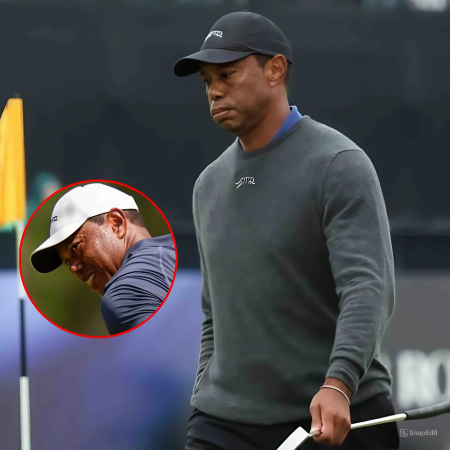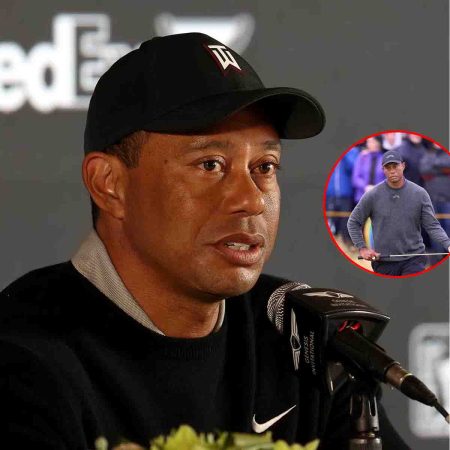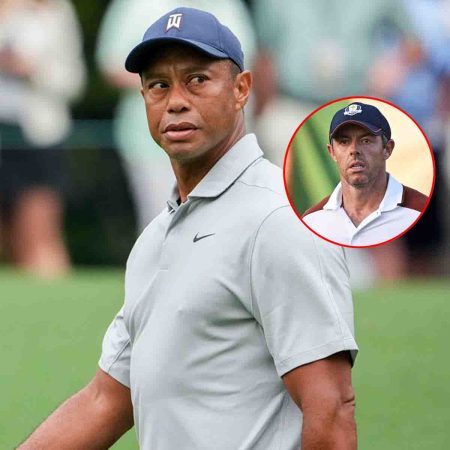LeBron James has seriously thrown his name into the GOAT conversation after passing Kareem Abdul-Jabbar in scoring this season. For 20 years in a row, LeBron has been one of the most talented players in the world, with both physical and mental gifts that allow him to dominate the game. Ever since his rookie season, he has been compared to the likes of Michael Jordan and Magic Johnson and has not disappointed anybody. In many ways, he has exceeded expectations.
Nobody would have imagined LeBron could play at this level for two decades, but he has done it and continues to chase his 5th championship with the Los Angeles Lakers this season. But how does he compare to Michael Jordan precisely? Jordan is the man whom every player fights to eclipse because he is widely considered the best basketball player ever. Since his rookie campaign, Jordan entered the NBA and was more than impressive as he might have been the best player in the world in his first season.
The comparison between LeBron and Michael will have to be focused on the most interesting criteria yet: LeBron’s iconic 2012 MVP season with the Miami Heat and Michael Jordan’s rookie campaign. LeBron won his third MVP award in the 2012 season, and he has four MVP awards to his name at this moment. To be fair, James should have won more than one MVP trophy considering how many times he might have been robbed. The same might have gone to Michael Jordan as well, who probably should have had more than five MVP trophies if voting was done fairly during the 1990s decade.
LeBron James was considered to be at his apex in Miami with the Heat in the 2012 season as he captured league MVP and was physically and mentally dominant. Remember, James was coming off a disappointing Finals loss to the Dallas Mavericks and returned the following year with a “villain” mentality that was scary to witness. Meanwhile, many claimed that Jordan was already the best player in the world by his rookie campaign, but could he possibly have been better than prime LeBron James? Time for another GOAT debate, ladies and gentlemen, as we aim to find out.
We have also seen separate criteria for the GOAT debates between James and Jordan when stats and major categories were taken into account, but let’s go a little further by LeBron’s peak 2012 season against Michael Jordan’s rookie campaign. Here is the conclusion that can be drawn from the GOAT debate between LeBron James and Michael Jordan.
Points
LeBron James: 27.1 PPG
Michael Jordan: 28.2 PPG
LeBron James was fantastic offensively, posting 27.1 PPG on 53.1% FG, 36.2% 3-PT FG, and 77.1% FT. The King got his way with the Heat because following the 2010-11 Finals loss, The King became the go-to star for the franchise as he took over officially from Dwyane Wade. LeBron did most of his damage attacking the rim, although he shot a high percentage from three for his standards. Getting over 77% from the stripe was also a positive, as James was in his bag from the start. James finished the season 3rd in the league in scoring behind Kevin Durant and Kobe Bryant.
Michael Jordan’s rookie campaign might be the best ever. The superstar shooting guard averaged a whopping 28.2 PPG on 51.5% from the field, 17.3% from three, and 84.5% from the stripe. The superstar shooting guard took over the Chicago Bulls’ offense from the start, using his athleticism and shot creation to his advantage. Attacking the rim, dunking over defenders, drawing fouls, and using mid-range prowess were the keys to Jordan’s excellent series. Michael ranked 3rd in the league in scoring in his rookie season, and he has the edge over LeBron in this category.
Advantage: Michael Jordan
Rebounds
LeBron James: 7.9 RPG
Michael Jordan: 6.5 RPG
LeBron James has consistently been a terrific rebounder for a small forward who has the burden of being a scorer and playmaker as well. The King averaged 7.9 RPG for the season, and it was easy for The King to lead the Miami Heat in RPG. Chris Bosh also chipped in 7.9 RPG, but James had a slightly higher figure due to the number of rebounds he pulled over the 62 games he played. James, at 6’9” and 250 lbs, is one of the biggest players in the NBA until today, and his rebounding number was impressive.
Jordan, as a 21-year-old rookie, posted 6.5 RPG over 82 games played. The shooting guard actually led the Chicago Bulls in rebounding during the 1984-85 season, and as the most athletic player in the world, it wasn’t much of a surprise. Michael had phenomenal leaping ability and also had a high IQ by his rookie season, reasons why he was able to crash the boards at a very high level in his first year. Still, James was a better rebounder, and that is due to The King’s impressive size as a forward.
Advantage: LeBron James
Assists
LeBron James: 6.2 APG
Michael Jordan: 5.9 APG
LeBron James led the Miami Heat in APG during the year, and he was the primary facilitator despite Mario Chalmers and Dwyane Wade being the starting guards. The King was by far the best passer on the team throughout the year and averaged an impressive 6.2 APG with Wade and Chris Bosh alongside him. James has a career average of 7.3 APG, so while his assist number is below his average, he had an impressive season as a playmaker and had the edge over Michael Jordan.
Jordan posted 5.9 APG in his rookie year, which led the Chicago Bulls, and while he loses this category to LeBron James, it was a very impressive future for a score-first player who was only in his first season. Michael was facing double teams as the months went by in the season, and he was always willing and able to make the right plays. Even as he attacked the rim, Jordan found his teammates. Still, King James had the edge in the 2011-12 NBA season in terms of assists.
Advantage: LeBron James
Steals
LeBron James: 1.9 SPG
Michael Jordan: 2.4 SPG
LeBron James turned it on defensively with the Miami Heat, especially during the 2012 and 2013 seasons. The King was exceptional, specifically in his 2012 MVP campaign, because he averaged 1.9 SPG, which is above his career average of 1.5 SPG. Whether it was playing passing lanes or using his size to punish ball handlers and force them into turnovers, James was exceptional at stealing the ball and pushing the pace. The Miami Heat were a very solid fast-break team, as they ranked 16th in pace, and James’ steals had a large part to do with that.
Jordan led the Chicago Bulls in steals, posting 2.4 SPG, which was the 7th highest in the man’s career. MJ was too quick and explosive for most of the opposing ball-handlers, which allowed the shooting guard to come up with easy steals and get on the break. The Chicago Bulls were not a great team during that year since Jordan had no help, but the shooting guard’s ability on defense kept them somewhat afloat as only a rookie.
Advantage: Michael Jordan
Blocks
LeBron James: 0.81 BPG
Michael Jordan: 0.84 BPG
LeBron James is not known for being a dominant shot-blocker, although his chase-down block is one of the most highlighted defensive plays in NBA history. Sure, The King’s ability to time his chase-down block on an unaware player is fascinating to watch, but James can also battle inside and get to shots as needed as well. James was the best defensive player for the Heat all year, and his blocks average was impressive for a player who was the primary scorer and playmaker as well.
Jordan also averaged 0.8 BPG, quite impressively, showcasing his elite defensive ability in just his rookie season. The superstar Bulls guard was extremely explosive at 24 years old, which meant he could leap into the air to get to shots and also take advantage of unaware opposing players. The fact that a 6’6” shooting guard averaged more blocks as a 6’9” forward in his prime is absolutely amazing, and this category heads Jordan’s way.
Advantage: Michael Jordan
Team Wins
Miami Heat: 46 Wins, 46-20
Chicago Bulls: 38 Wins, 38-44
The Miami Heat had an exceptional team in the 2011-12 NBA season, mainly thanks to LeBron James but also the presence of Dwyane Wade, Chris Bosh, Mario Chalmers, Mike Miller, and Shane Battier. Miami had three superstars and also a host of defensive-minded players and sharpshooters. Miami won 46 games in the lockout-shortened season and finished second in the Eastern Conference behind the 50-win Chicago Bulls. That seeding helped Miami gain an advantageous position in the playoffs, and they made the NBA Finals before winning it all.
No doubt, the 1984-85 Chicago Bulls were not ready to compete by any means. Jordan led the Bulls in scoring, assists, rebounds, and steals, with only Orlando Woolridge, Quintin Dailey, and Steve Johnson averaging double-digit scoring. Woolridge was very solid, posting 22.9 PPG and 5.6 RPG, but his skills weren’t enough to make the Bulls a legitimate contender. Jordan did lead the Bulls into the playoffs, but he only won 38 wins which was good for the 7th seed.
*Team wins won’t count in the final score
Who Had The Better Season?Michael Jordan vs. LeBron James 3-2
Both LeBron James and Michael Jordan are very close in their statistics, and also each has Hall of Fame accolades that place them on the Mt. Rushmore of NBA athletes. During LeBron James’ 2012 MVP campaign, he led the Miami Heat in points, rebounds, assists, and steals while finishing as the second seed in the Eastern Conference. LeBron was a menace defensively as he was offensively, using his size and skills to defend multiple positions, including guards, forwards, and even centers at times. The King was at his apex during the 2011-12 NBA season because he had developed a nasty streak after the entire world laughed at his failure in the 2010-11 Finals.
James returned with a vengeance, taking over the reins of the team and dominating the court despite having to share the ball with Dwyane Wade and Chris Bosh. The King was physically superior to every player in the NBA as he was bigger, stronger, faster, and more explosive at the forward position. Even when James was at his apex and won his third MVP award (to go along with his first championship and first Finals MVP), he could not gain an edge over Michael Jordan in the GOAT’s rookie campaign.
Michael Jordan might have had the greatest rookie campaign of all time, as he finished third in the NBA in scoring and led the Chicago Bulls in PPG, RPG, APG, and SPG while making the postseason. It is very rare that a player leads the team in almost every major statistical category but Jordan was immediately the most talented two-way player in the NBA as a 24-year-old rookie. That is why Michael is truly one of a king, especially since James did not gain an advantage over him in this overall comparison and actually lost it when comparing all major stats.
It is quite amazing that comparing LeBron James in his MVP season to a rookie Michael Jordan did not yield many results in The King’s favor. LeBron gains the advantage when discussing accolades and team wins, of course, but individual statistics and impact over the regular season did not yield any difference. In a nutshell, James was exceptional during the 2011-12 campaign as he ended up showing a nasty streak and exceptional two-way skillset during the regular season but Michael Jordan was arguably more impressive because he did it all for the Chicago Bulls and actually averaged more PPG, SPG, and BPG than LeBron in his prime.
Source: fadeawayworld









